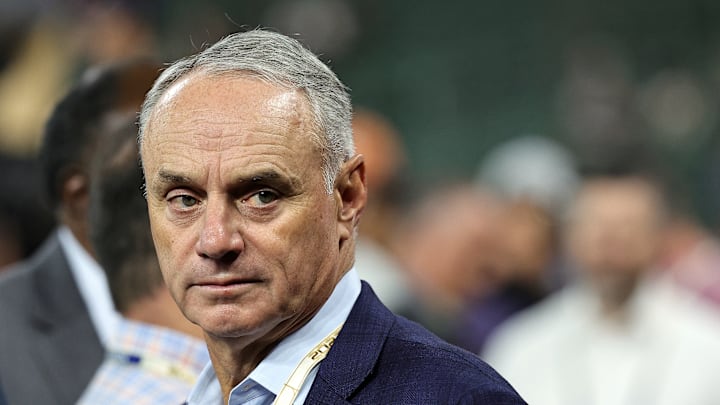Contract limits would help the Red Sox keep their stars
The Red Sox ownership group led by John Henry has proven they are willing to fund one of the top payrolls in baseball. Boston had MLB's highest payroll in 2018 and 2019 while ranking in the top three for a couple of years before that. They are still top-10 entering this season despite the perception that the Red Sox are operating as if they are a small-market team. They will spend. What they won't do is commit to a player on a long-term deal that extends until their late 30s or early 40s.
The free agency landscape has evolved in recent years with teams showing an increased willingness to splurge on lucrative long-term deals. Their intentions extend beyond an attempt to lure star talent with the highest total dollar figure. These deals are meant to circumvent the luxury tax rules by creating a bit of extra wiggle room beneath the threshold. Players are willing to sacrifice for a lower average annual value, which luxury tax payments are calculated upon, in exchange for the security of more years. This ensures they are still paid to be stars long after their skills have eroded to the point where they are no longer worth their salary, while the team gains short-term flexibility with some savings on the current payroll.
Boston hasn't bought into this strategy. While their stubbornness to adapt to the changing market has prevented them from competing for the top free agents, history suggests they are wise to be cautious. There is a long track record of superstars who earned mammoth long-term deals that didn't pan out. Miguel Cabrera, Albert Pujols, Robinson Cano, Prince Fielder and Alex Rodriguez are notable examples of players whose production drastically declined several years before the contract ended. Those contracts became an albatross that hindered the team's financial flexibility to build around their fading star. Those teams were forced to eat a significant chunk of salary on the back end of those deals after the players were no longer worthy of an everyday spot in the lineup or were designated for assignment.
Some teams are willing to gamble on these long-term deals, treating the sunk cost on the back end of the deal as if they were deferred payments. It's the price of doing business in modern free agency. It's going to backfire eventually, but the risk might be worthwhile for the chance to compete for a World Series title while the star player remains in their prime. The Red Sox are reluctant to pay that price since it's counterproductive to their goal of sustainable success.
